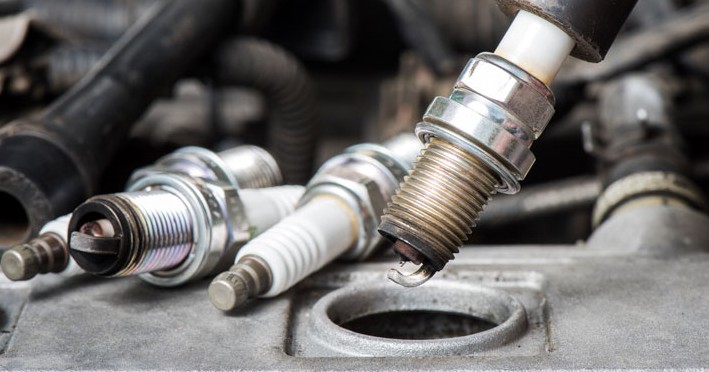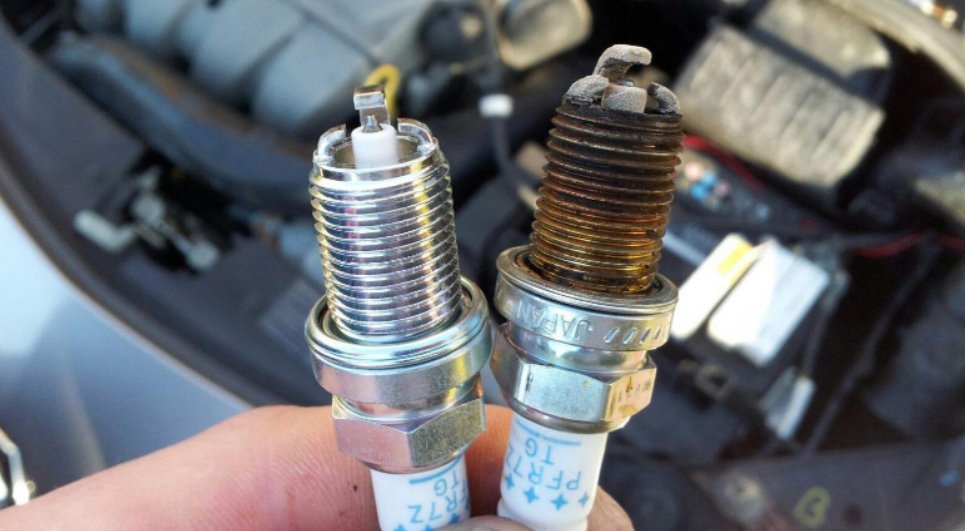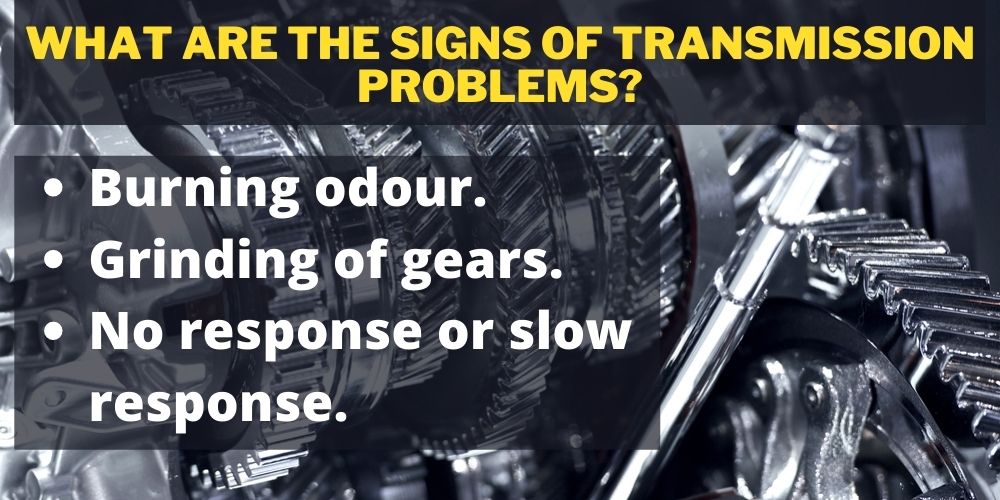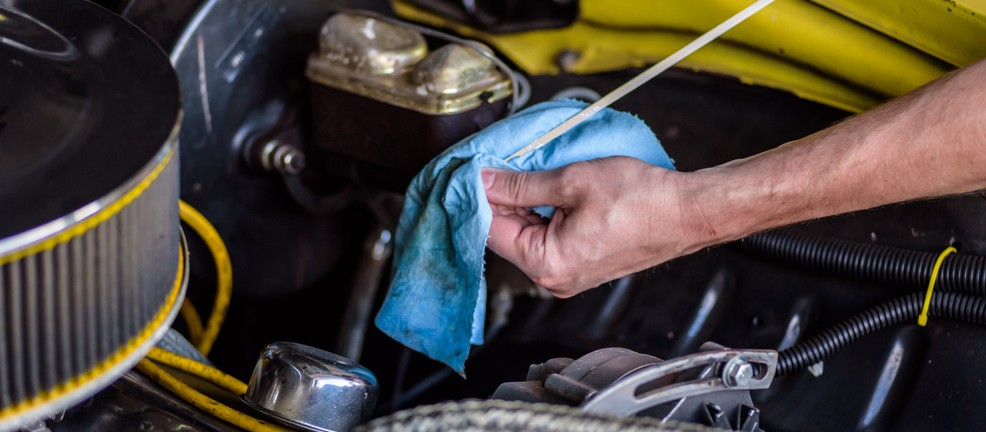The transmission system in your car consists of a hundred interconnected parts that function with the gear transmission process, and these parts are exposed to heat and friction, which is involved in the process of transmission.
But, can bad spark plugs cause transmission problems?
Well, these parts tend to experience more wear and tear than the other car parts. So there are slightly more chances of these parts getting damaged or not functioning properly. It is very important to know the cause of the transmission problem before it lands you in a dangerous situation.

There can be several reasons for your transmission to not work properly. Worn-out gear systems, worn-out clutch, leakage, lack of maintenance, and solenoid issues are some reasons that may be causing this problem.
Table of Contents
Can bad spark plugs cause transmission problems?
No, there is no possible reason that damaged spark plugs can directly affect a car’s transmission system. The spark plugs are not directly connected to the transmission system.
However, the transmission systems are connected to the wheel system of the car, whereas the spark plugs are connected to the engine of the car. So spark plugs cannot directly cause transmission problems.
Bad spark plugs can cause other problems like decreased acceleration, poor fuel economy, misfiring of the engine, and difficulty in starting the car. However, bad spark plugs might be responsible for delivering lower torque to the transmission.
If you’re experiencing a transmission problem, then the spark plugs won’t be the only reason. The main reason for it can be the faulty wirings or the wearing out of the transmission systems of the car, solenoid issues, or it can also occur due to lack of maintenance.
What problems will bad spark plugs cause?
It’s almost inevitable if you own a car and wouldn’t have experienced any problem with your engine. There may be many reasons that may be causing the problem in your engine, and the most common of them would exist in your car’s ignition system.

The ignition system would not be able to function properly for several other reasons like faulty ignition coil or damaged spark plugs. Damaged spark plugs should not be ignored as they may, later on, cost you much more if ignored and not repaired immediately.
Here are some of the problems that may arise due to bad spark plugs:
🚗 Engine backfiring
How bad do spark plugs cause engine backfiring?
Incorrect crossing of the spark plug wires can cause this backfiring problem; it can also happen if your spark plugs are hooked up in improper order. If the spark plug is in the wrong cylinder in the wrong order at the incorrect time, this might lead to backfiring in your car.
It may be a sign that your car’s fuel to air ratio is imbalanced. In this case, it is best advised to seek a repair or the replacement of the spark plugs as the unburned fuel particles can therefore explode in the exhaust system.
What are the other reasons that cause the problem of an engine backfiring?
Well, it is not that only spark plug is the reason for engine backfiring; other reasons may cause this problem, and they are as follows:
- Bad ignition timing.
- Bent or damaged valve.
- Lean air/fuel mixture.
- Rich air/fuel mixture.
- Incorrect spark firing order.
🚗 Misfiring of engine
What is engine backfiring?
If you experience a light or a strong jerk coming from the engine while accelerating hard, this might be engine misfiring, and it usually causes the engine to illuminate. The most common situation in which you are likely to notice your engine backfiring is when your car is on high gears, low on RPM. An engine misfire is a case in which one or more cylinder doesn’t produce much power.
What is engine backfiring?
Misfiring of the engine can happen due to many reasons, some of them are as follows:
- Bad spark plugs- Faulty spark plugs might be the engine misfiring instead of running smoothly. The faulty spark plugs can affect the combustion process, which will eventually land a major impact seen as the engine misfiring.
- Damaged ignition coil and wires- If you have damaged wires or a faulty ignition coil can lead to the problem of engine misfiring.
- Vacuum leaks- Engines consist of dozens of small vacuum hoses that enable air flow. A small fault in these hoses can result in a major problem that directly affects vacuum leaks which then becomes the cause of engine misfiring.
- Clogged fuel injector- The fuel injector present in the engine of your car can be clogged by carbon or dirt, or there may be other reasons that may be the cause the fuel injectors to work improperly; this fault can influence the fuel injectors of your car, leading to the misfiring of your engine.
🚗 Rough idle, and hard start
What happens to an idle and hard start?
If your car startles while starting or something feels off during driving, this might indicate the rough idle and hard start problem. Look for the following symptoms to know if there is a problem with rough idle and hard start in your car:
- Bouncing or shaking of the car when idle.
- Skipping/Shaking sounds.
- Idling below 600 RPMs.
- Inconsistent/jumping RPMs.
Your car may also shutter when you start the car.
What are the other causes that cause this problem?
The other causes that may be responsible for this problem are as follows:
- Dirty fuel injectors- If your fuel injectors are not cleaned, or they are clogged with dirt, these might affect your car’s ignition system, which results in the idle or hard start of the car engine.
- Damaged fuel pump- The fuel pump is responsible for sending the gasoline from the fuel tank to the injection system. But the fuel pump can clog due to the wear and tear of the pump, and as a result, the engine won’t receive enough fuel to keep the combustion going.
- Faulty airflow sensor- The airflow system helps record how much fuel to use, which is directly dependent on the air supplied to the engine. But when this system fails, this might result in the wrong calibration of the right mixture of the fuel to air.
What are the signs of transmission problems?
If you notice any transmission problem symptoms that may prompt you into a disastrous situation, seek an immediate repair as soon as possible. This can save you hundreds of dollars and cause serious damage to your car, making it extremely important to recognize the transmission issues as soon as possible.

Here are some of the symptoms that may help you notice the transmission issues:
🚗 Burning odour
No matter what you do, the bring smell coming from your car will never be a good indication of anything. This smell could occur because of the faulty transmission system.
How does the transmission system fault lead to the burning smell?
The transmission system contains a fluid that is a part of the system, the overheating of this fluid can lead to the burning smell of your car.
🚗 Grinding of gears
How can a faulty transmission system causes the grinding of gears?
If your vehicle struggles to shift gears, or you may feel a slipping of gears whenever you try to shift gears, this indicates that you have a problem with your car’s transmission system.
What else causes the grinding of gears?
Failing wheel, faulty hub bearings, worn-out brakes, a faulty CV joint. You should seek an immediate repair regardless of what the problem is.
🚗No response or slow response
Your car’s response should be responsive and should respond immediately while switching gears; if you experience any delay in switching the gears, this might be due to the faulty transmission system.
How do you fix transmission problems?
Many problems are associated with the faulty transmission system but now let’s talk about how you can fix these problems.

- Leaking of transmission liquid
- You can check whether you are low on transmission liquid or if there’s a leak of the liquid causing the transmission breakdown. Start y taking your car for a short drive and then lift the car’s hood and read the dipstick level, which reads the transmission liquid; make sure that your car is on ground level. If you notice a leak, seek a repair in the nearest service centre.
- Check the engine light.
- You can check the engine light to know if your car needs any replacement or not.
- Slipping of gears
- The slipping of gears is a clear indication that something is wrong with your car’s transmission system. To avoid the situation in which you would have to pay an expensive amount to repair your car’s transmission system, take your car for a checkup at the local dealership.
- Faulty spark plugs
- If you suspect that something is wrong with your car’s spark plugs, then you should consider seeking a replacement for the same as soon as possible.
Conclusion
Transmission systems play a pivotal role in the working of a car. Therefore, they need to be serviced as regularly. Transmission systems can wear out easily as they are used every time you drive. Moreover, you should be proactive when it comes to maintenance.
Actively check for the current condition of the transmission systems of your car to avoid the accidents that may prompt.
